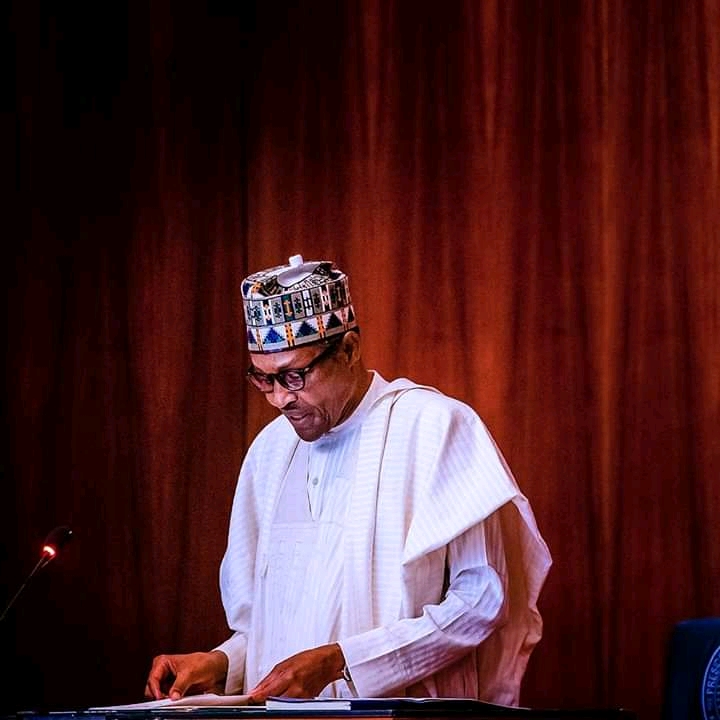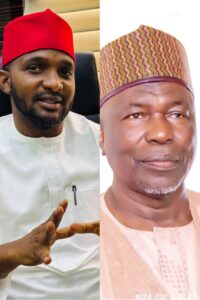
By Bin Isah
Having a respect for somebody as a chief administrator and supporting his government doesn’t mean not seeing him as fallible. And there is no government that is not prune to making wrong decisions by whoever that government is being led. Buhari-led government is not an exception.
I may not openly insult Buhari or personally attack his personality and his style of leadership. I may not accuse him of being the problem of his government. And I may not see him as the worst president. But I will never claim that wrong things will not happen in his government, with his knowledge or not, and it will be very dangerous of him or any other person to think that Buhari is not fallible or his government will never make wrong decisions or move in bad directions as it tries to make things better for people.
And while we could think so much of Buhari’s integrity, we can’t do that for people around him. We can never claim that the people in his government share his ideas, ideals or aspirations, or even want Nigeria to be better at all. So, it’s possible that his government will not go as people would enjoy it but simply as some few people in the government determine. And this happens everywhere.
In fact, there is no any reason for Nigerians to see things differently under Buhari’s leadership, that the people in the government are better than those of yesterday, because so many problems in how they run their lives and activities, private and public, reveal so much about them that might have never been expected. They’re the same people that we know in Nigerian system, perhaps with some slight few exceptions. Bad people still exist in Buhari’s government. They head government departments and they make decisions on what should be done and how. Even Buhari himself knows this. “Some people that we trust have betrayed us” he said some times ago. Who are you to claim otherwise or say some decisions are not made by these wrong people?
And government is not a privilege. It’s meant to serve people, to make things easier and better for them. And when it fails to do that, people have the right to speak up and demand for what’s best for them, and the government must listen to them and make possible, necessary changes in a way that it wouldn’t be bad for both sides. So, people have the right to check Buhari’s government and make comments on what it does and how it does them.
The policies that government makes have to reflect the conditions of the people it serves, not simply what it just thinks for them. People know Nigeria and know how their lives are treated by government and the people running it. Many times, it’s not that the policies that are made are not good; so many times they are. But sometimes they don’t reflect people’s conditions, and at times, people simply do not trust the people in government because of how things are always “abused” in this place.
If borders, for example, must remain closed, for whatever reasons, whether for promoting local production or security maintenance, the government must ensure that it makes it easy for people to “produce” and that what it provides in that direction are not “embezzled” or treated with negligence; it must make sure that people are not “exploited” by the local producers; and it must make sure the arms and criminals are blocked in all ways. But we see so many lapses in this area, people suffer by the opportunities given to other people. What are meant for the local producers are being embezzled, or misused by them, and some local producers are making life hard for people. And at the end of the day, government does nothing.
Buhari and some few people in the government are trying their best indeed, but so many people that are trusted are sabotaging the efforts and make it difficult for people to see their impacts. And even when these bad people are known, nothing is done, no one is punished by the government. The business just continues. Who will then make people believe that there is a change or that they should be patient?
The life of the average Nigerians, the common people, whether the low-earning civil servants or people running their own little businesses to live, is usually a deplorable, stressful one. No basic social amenities available, and sometimes, available but unaffordable. They simply need help. And they expect it from none but the government. Government does that in many ways, not collecting too much tax from people, and putting “subsidies” in what people consume daily to live in less distress. But the government has to be economic viable to do this. It has to have so much in its own hand to make those promises. And Nigerians believe it always does. Even if the government says it doesn’t.
Whatever may be the case, Nigerians simply believe that the “taxes” collected from people and the “subsidies” removed are not going to help them, or the government. Even though the government claims that it needs to seek more taxes from people — though it provides them with little — and it has to reduce what it spends on what people consume, people believe that nothing could change in their lives. Paying more in taxes and government removing subsidies do not make the government more “effective”. And at the end of the day, only some few people squander the savings, while life is being made harder for others. And nothing will be done, even when known, to these bad people in the government. Who will then believe that “removal of subsidies” is of any benefit to the common man?
And the government has put a great gap between it and the people, a gap that facilitates “distrust”. It’s not a matter of today or yesterday. For a long time, as a result of lies, corruption and misrule that permeate the Nigerian governments, Nigerians have stopped to believe in what government says or claims that it does or it will do for them. They have to see things before they believe, otherwise And still this government maintain this gap.
Of course, the present government works, to a greater extent, in a way that people could believe. But there are so many things that are said to have been done or are being done by the government to certain people in particular places, but even the people in those places do not see them. And the government even claims to have spent billions of naira on those “invisible” programmes, projects and works. And the government makes no right clarification even when people complain. Based on these scenarios, the government will always find it hard to convince people to believe in it. And no country anywhere in the world would see light with this distrust between the government and the people it claims to serve. And how would people believe a government that “economy” is in crisis when the people in the government are not changing their ways in how they run their lives and the affairs of government, that only the poor Nigerians will pay the price?
At the end of the day, whether one is Buharist or not, one thing is clear, that even in Buhari-led administration, there are bad people and bad decisions and ineffective policies are made, and the measure of government, whether it’s good or bad, depends on how the majority of the people it leads feel it. And whether you’re a Buharist or not, the government is meant to serve you, to make your life better, and not the other way round. And our problems, as a people, that a government fails to solve, or it even creates, are still going to be our problems, even after the government passes away. Be wise!


